Scandinavian Coldblood Trotter
The Scandinavian Coldblood Trotter, found in few Nordic countries, is an equine breed produced by crossbreeding local coldblooded farm horses with faster and lighter horses. Its origin is possibly associated with two closely related horse breeds – the Swedish Coldblood Trotter (Svensk Kallblodstravare) and the Norwegian Coldblood Trotter (the Norsk Kaldblodstraver).
Scandinavian Coldblood Trotter Pictures
- Scandinavian Coldblood Trotter Horse Pictures
- Scandinavian Coldblood Trotter Horse
- Scandinavian Coldblood Trotter Horses
- Scandinavian Coldblood Trotter Images
- Scandinavian Coldblood Trotter Mare and Foal
- Scandinavian Coldblood Trotter Pictures
- Scandinavian Coldblood Trotter Running
- Scandinavian Coldblood Trotter
Quick Information
| Alternative Names | Draft Trotters |
| Temperament/Personality | Willing, well-mannered, gentle, docile |
| Physical Characteristics | Small, compact, muscular body; somewhat square head, large nostrils, strong shoulders and hindquarters; solid, refined legs |
| Colors | Bay, chestnut, black; cream and dun are also possible |
| Height (size) | 15.1 hands (154 cm, 60.4 inches) (average) |
| Blood Type | Coldblooded |
| Common Uses | General riding, racing |
| Health | May suffer from gradual conversion of ungular cartilages into bones, preventing it from normal walking |
| Gait | Expansive, expressive trot; energetic movements |
| Popular Traits | Strength, endurance, heaviness; tolerates cold weather |
| Feeding/Diet | Forages including grass, hay; low quantity of concentrates such as pellets, grain; supplements such as mineral pellets; fresh, clean water |
| Country of Origin | Sweden and Norway |
| Ancestors | North Swedish Horse, Norwegian Dolehest |
| Breed Information | Det Norsk Travselskap Breed standards |
Scandinavian Coldblood Trotter Video
History and Development
The coldblood trotters were developed based on Dolehest and North Swedish bloodlines. With an objective to produce powerful, fast and smooth running horses, the breed was refined by introducing lighter horses to the breeding stock. The draft trotters, being smaller, heavier, and more muscular, are slower than the Standardbred and other warmblood trotters. However, they have an extensive covering of fur, which makes them suited to harsh winter conditions.
At the beginning of the 20th century, trotting races were a common leisure activity in Scandinavian countries and this sport has been continuously thriving since its inception. Most of the horses racing in the competitions comprised the Scandinavian coldblood trotters. These horses were widespread in Sweden and Norway, and their numbers were stable until the Second World War.
With the introduction of machinery and modernization of agriculture, the population of these coldblood trotters sharply declined in 50 years. In order to preserve and promote the breed, the Det Norsk Travelskap association was established.


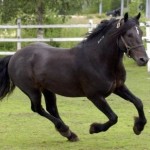
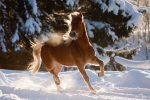
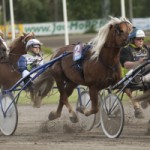
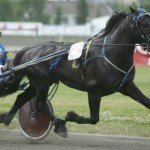
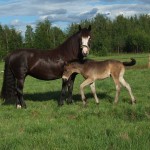
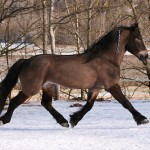
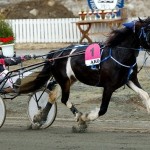
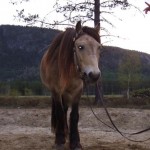


I am looking to buy coldblood can you help me